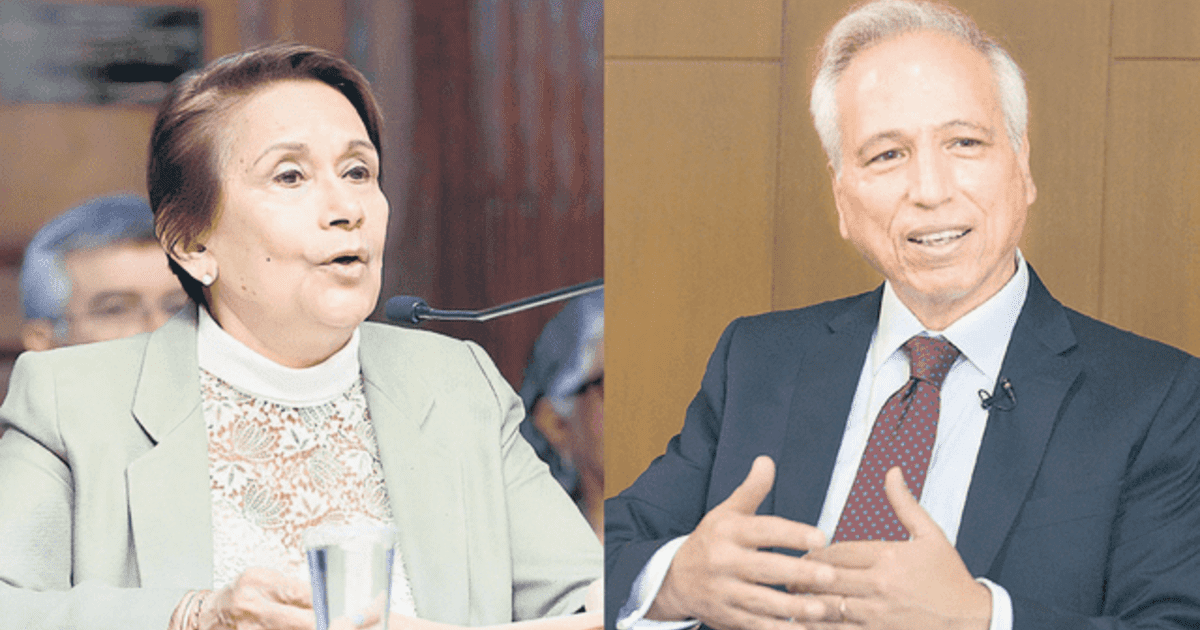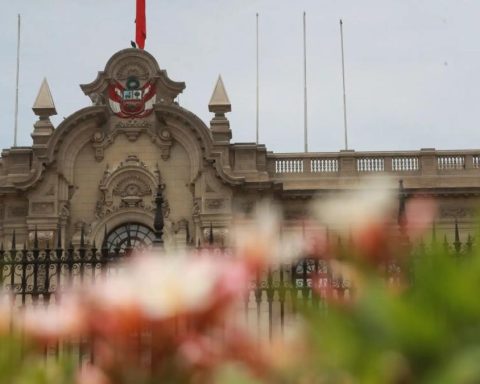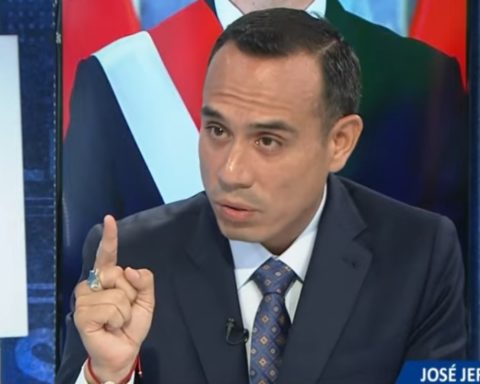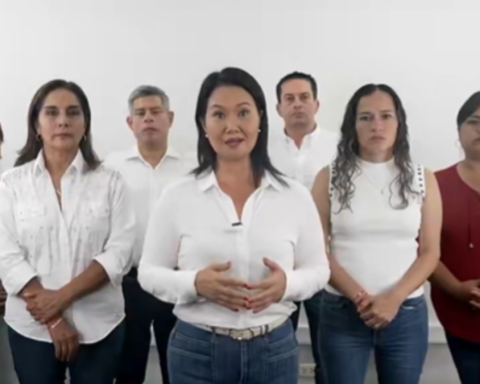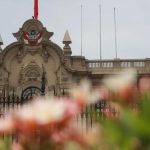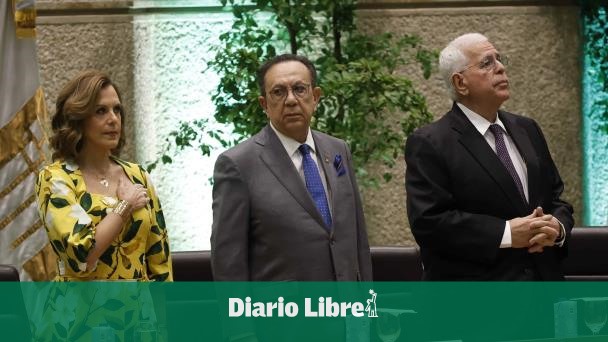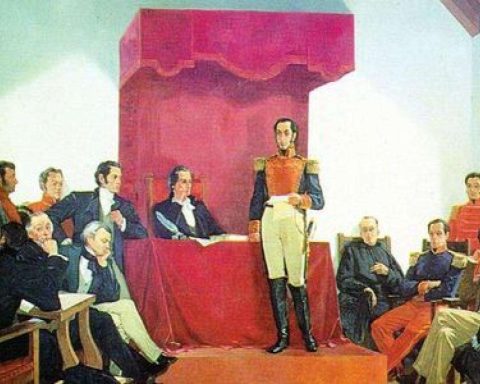He Congress ended up defeated in his attempted coup against the National Board of Justice (JNJ). The Constitutional Court (TC) yesterday rejected the jurisdictional claim that he filed against the Judiciary (PJ).
With this decision, the judges of the JNJ, Ines Tello and Aldo Vasquezwill continue in their functions.
There were four magistrates of the Constitutional Court who opposed the lawsuit: Luz Pacheco, Helder Domínguez, César Ochoa and Manuel Monteagudo. The Congress needed five votes to emerge victorious, but failed in the attempt.
Judges Pedro Hernández, Francisco Morales and Gustavo Gutiérrez, according to information from the court, left the session and did not vote.
Division in the TC due to the votes of the demand
At night, Judge Gutiérrez denounced on Canal N that this case was not put to a vote. “Mr. Hernández retires and at that moment Judge Monteagudo says that the vote will proceed and to me it seems like a regrettable fact (…). It seemed like a forced act and I also went along and withdrew,” he lamented.
The president of the TC, Luz Pachecohad another version and He assured that during the vote the quorum was seven judges in the session. “Dr. Hernández failed to convince. I was there, physically, and then, seeing that a consensus was not reached, I said: let’s go to the vote. Dr. Hernández took his things and left. Yes, the rest of us were a little disconcerted and Dr. Gutiérrez thought that we were imposing something and decided to cut off communication,” he narrated in an interview on RPP.
Pacheco specified that at the time the vote was called there were seven present. There were four left after the incident, but that did not paralyze the session. “Normally it happens that one of the magistrates withdraws or reserves his vote. So, if they did not vote it was as if they had reserved their vote,” he explained.
The president of the TC added that it was not possible to postpone the vote. First, because a month ago he had offered to resolve this conflict of jurisdiction, and second, because next week two of his colleagues will travel abroad.
Against. Judges Pacheco, Monteagudo, Ochoa and Domínguez opposed it.
A case with several stages
This is how this conflict ends. The controversy begins on March 7, when the Plenary approved the constitutional accusation that disqualified Tello and Vásquez from public service. Both jurists denounced that this process was irregular and presented a claim for protection before the Judiciary (PJ).
That month the First Constitutional Chamber issued a precautionary measure that temporarily restored them to the JNJ until the substance of the protection claim is resolved. Congress considered that this provision violated its powers and appealed to the TC through a jurisdictional conflict against the PJ.
The lawsuit did not stop judicial control. On July 2, the First Constitutional Chamber resolved the amparo: it ruled in favor of Tello and Vásquez and ordered that they be restored.
The ruling was questioned by the fujimorism and its allied groups, who promoted a law that modified the New Constitutional Procedural Code to reduce the votes necessary to resolve jurisdictional conflicts in the TC to four.
On Thursday this law was approved in the second vote. At the closing of this note, The Republic was able to learn that the autograph had been sent to the Palace for Dina Boluarte to promulgate.
Congress hoped that with this law the TC could resolve its request with four votes in favor and validate the dismissal of judges Tello and Vásquez. However, the shot backfired.
He constitutional lawyer Omar Cairowho defended Judge Tello, considers that this decision shows that it is still possible to recover the country’s institutionality.
“I think that in the midst of the institutional, social and political crisis that the country is going through, this decision by the TC is comforting. The highest body of constitutional justice in the country has demonstrated independence and complete remoteness with the regrettable modification of the Constitutional Procedural Code carried out by Congress,” he reflected.
The JNJ is the institution in charge of appointing, ratifying and dismissing judges and prosecutors, the head of the National Office of Electoral Processes (ONPE) and the National Registry of Identity and Civil Status (Reniec).
Since last year, its judges have been the target of attacks by Congress after the disciplinary proceedings they opened against the former National Prosecutor, Patricia Benavides.
When Tello and Vásquez returned to the JNJ, Benavides was dismissed and the head of the ONPE, Piero Corvetto, was confirmed in office.
During this period, Congress also tried to eliminate the JNJ to create the National School of Judiciary and change its organic law to fill it with low-qualified substitutes. But all these attempts, like the competition lawsuit, did not prosper.
Congress: an irregular dismissal
The Plenary Congress disqualified the JNJ judges, Inés Tello and Aldo Vásquez, with 67 votes. The Podemos Peru congressman, José Luna Gálvez, participated in that decision. Tello and Vásquez pointed out that Luna should not have voted because he is a regular member of the Permanent Commission.
In Congress they alleged that Judge Tello should not have continued in office after turning 75 years old.
